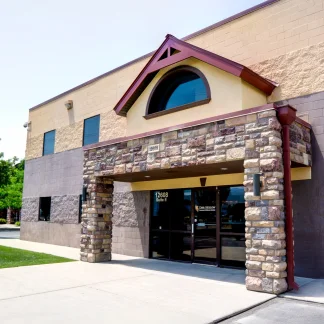Steps Recovery Centers - Outpatient
Steps Recovery Center is a drug and alcohol treatment facility committed in prov...
Deer Hollow is the leading mental health center in the country providing deeply caring, comprehensive treatment to individuals struggling with the devastating impacts and overwhelming challenges of trauma. During this phase you have more freedom to practice recovery skills and integrate everything you learned back into society, while still working
Most therapy is spent exploring the unhealthy things we do in our lives to cope with underlying pain and feelings of fear, shame, abandonment, and feeling out of control and not feeling safe. This pain is often from wounds that begin in childhood and are validated through our relationships, our jobs, and our personal choices. People often turn to behavioral addictions and substance abuse to deal with the pain that manifests as PTSD, anxiety, depression, and suicidal thoughts. This pain is core trauma.
How We Treat Core Trauma Deer Hollow is set apart from all other recovery and wellness programs because of how our expert clinicians apply our unique combination of treatments (also called modalities). We combine cutting-edge, evidence-based, best practice intensive trauma treatments with specialized therapies that enable us to treat trauma at its core and enables you to truly step into healing.
Contact us for more information: (888) 593-5669

Connect with Deer Hollow - Outpatient by calling their admissions team directly.
(888) 593-5669 Website Get DirectionsThe Joint Commission, formerly known as JCAHO, is a nonprofit organization that accredits rehab organizations and programs. Founded in 1951, the Joint Commision's mission is to improve the quality of patient care and demonstrating the quality of patient care.
Joint Commission Accreditation: Yes
Group therapy is an opportunity for the client to better see themselves in the eyes of others. They help their clients understand how the patient interact with others and how their words and actions might affect them. In group therapy all are equal and given a chance to gain insight into themselves through the group dynamics that naturally develop. Allowing their clients to relate to each other, to gain empathy and awareness, is a key facet in their recovery and a powerful, tool for change.
In individual therapy, a patient meets one-on-one with a trained psychologist or counselor. Therapy is a pivotal part of effective substance abuse treatment, as it often covers root causes of addiction, including challenges faced by the patient in their social, family, and work/school life.
Life skills trainings involve all the skills a person must have in order to function successfully in the world. These include time management, career guidance, money management, and effective communication. Truly successful addiction recovery is based on the ability to not only live substance-free, but to thrive. Life skills teaches the practical necessities of functioning in society, which sets clients up for success in life, and therefore sobriety.
Sound therapy (aka sound healing or vibrational medicine) uses sonic vibrations to stimulate healing at the cellular level. Vibrations, either from the human voice or resonant objects like tuning forks, gongs, or Tibetan bowls, affect cellular resonance in the body, which can help heal the impact of anxiety, depression, trauma, and more.
In individual therapy, a patient meets one-on-one with a trained psychologist or counselor. Therapy is a pivotal part of effective substance abuse treatment, as it often covers root causes of addiction, including challenges faced by the patient in their social, family, and work/school life.
Life skills trainings involve all the skills a person must have in order to function successfully in the world. These include time management, career guidance, money management, and effective communication. Truly successful addiction recovery is based on the ability to not only live substance-free, but to thrive. Life skills teaches the practical necessities of functioning in society, which sets clients up for success in life, and therefore sobriety.
Sound therapy (aka sound healing or vibrational medicine) uses sonic vibrations to stimulate healing at the cellular level. Vibrations, either from the human voice or resonant objects like tuning forks, gongs, or Tibetan bowls, affect cellular resonance in the body, which can help heal the impact of anxiety, depression, trauma, and more.
Life skills trainings involve all the skills a person must have in order to function successfully in the world. These include time management, career guidance, money management, and effective communication. Truly successful addiction recovery is based on the ability to not only live substance-free, but to thrive. Life skills teaches the practical necessities of functioning in society, which sets clients up for success in life, and therefore sobriety.
Sound therapy (aka sound healing or vibrational medicine) uses sonic vibrations to stimulate healing at the cellular level. Vibrations, either from the human voice or resonant objects like tuning forks, gongs, or Tibetan bowls, affect cellular resonance in the body, which can help heal the impact of anxiety, depression, trauma, and more.
Sound therapy (aka sound healing or vibrational medicine) uses sonic vibrations to stimulate healing at the cellular level. Vibrations, either from the human voice or resonant objects like tuning forks, gongs, or Tibetan bowls, affect cellular resonance in the body, which can help heal the impact of anxiety, depression, trauma, and more.
Steps Recovery Center is a drug and alcohol treatment facility committed in prov...
Steps Recovery Center–Annie’s House is a 12 step-focused drug and alcohol rehab ...
Serenity Recovery and Wellness is a private rehab located in Riverton, Utah. Ser...
Salt Lake County Youth Services is a public rehab located in Riverton, Utah. Sal...